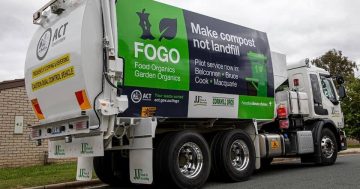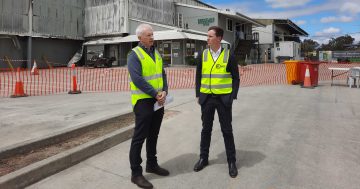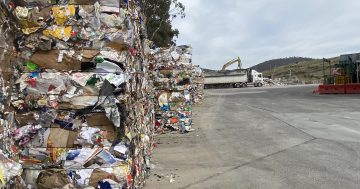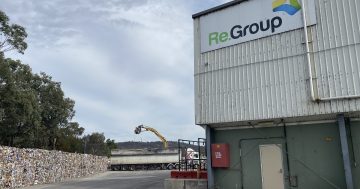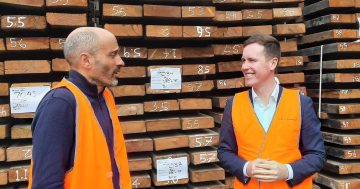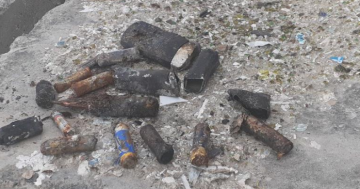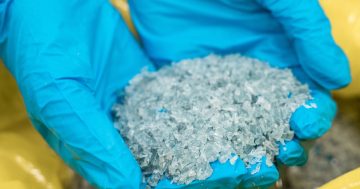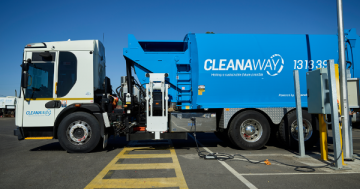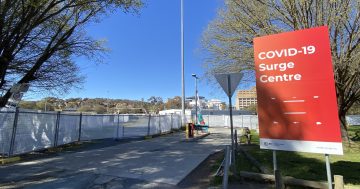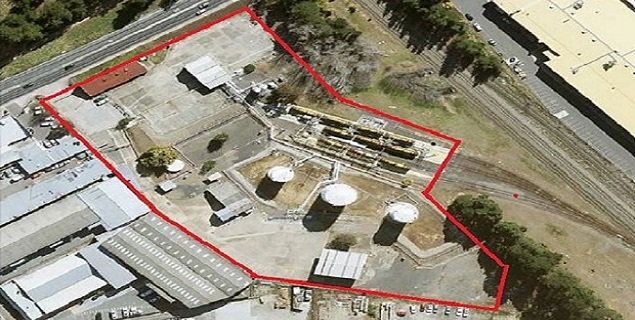
Access Recycling’s Canberra operation now includes the disused railway fuel terminal adjacent to its metal recycling facility in Fyshwick. Photo: Supplied.
Urban change is afoot in Fyshwick where the suburb’s industrial history is coming up hard against changing patterns of use and the arrival of residential development at the Molonglo Group’s Dairy Road precinct.
A few weeks’ ago, Fyshwick businessman Rob Evans of Allbids voiced his frustration over waste processing proposals and today Adam Perry from Access Recycling responds. Access is a metal recycling service provider to heavy industry, mining, rail services and consumers across several sites around Australia.
Tomorrow, you’ll hear from Inner South Community Council president Marea Fatseas who queries how much waste processing we really need in the ACT.
Our metal recycling facility in Lithgow Street, Fyshwick, has been in continuous operation since the mid-80s. Over that time the nature of scrap metal processing has changed. The total amount of scrap metal generated per person, per annum, is gradually decreasing.
At the same time, the waste content in scrap metal, particularly plastic and composite materials, is increasing. Years ago, the metal we received and processed was clean and heavy – now it’s light with a lot of plastic attachments. You’ve only got to look at a modern car and compare it to an old car to see what we are referring to.
Our development application is to undertake a number of site improvements, including more concreting of our work areas, building better security fencing, and installation of metal processing machinery to allow us to process metal that has non-metallic attachments.
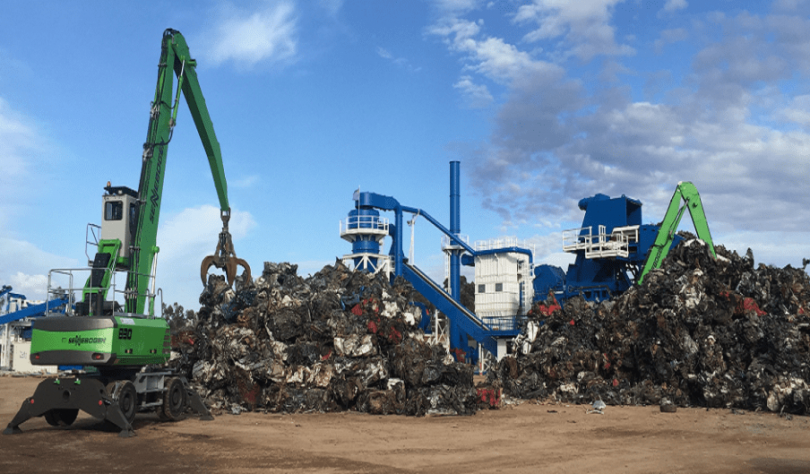
Access Recycling also operates in Adelaide and western NSW. Photo: Supplied.
We simply seek to modernize our processing technology. We don’t seek to increase the volume of metal processed. We regularly report our throughput volumes to TCCS as a condition of our Waste Facility Licence. Similarly, all environmental aspects of our operation are closely monitored and regulated by the EPA, as a condition of our Environmental Authorisation. Daily operations are conducted according to a binding Environmental Management Plan, which is reviewed annually by the EPA.
Our site has been a metal recycling facility for more than 30 years. What we are proposing is entirely consistent with the area. We are in an industrial zone. We are surrounded by other industrial sites, including builder’s depots, a sawmill, a brick distribution centre, two of Canberra’s largest concrete batching plants, a bulk cement storage facility, a sheet metal fabricator, and one of Canberra’s largest waste bin companies.
None of our immediate neighbours have made any submissions against our development application. Our site is appropriately zoned for the proposal. There are four other metal recycling facilities operating in Fyshwick, one of which has four-times the site footprint of Access Recycling.
All we are seeking to do is modernize part of our operation so that we can remain competitive and efficient well into the future. We won’t have any adverse impacts on our neighbours, and we will need to employ more people to operate the new machinery.












